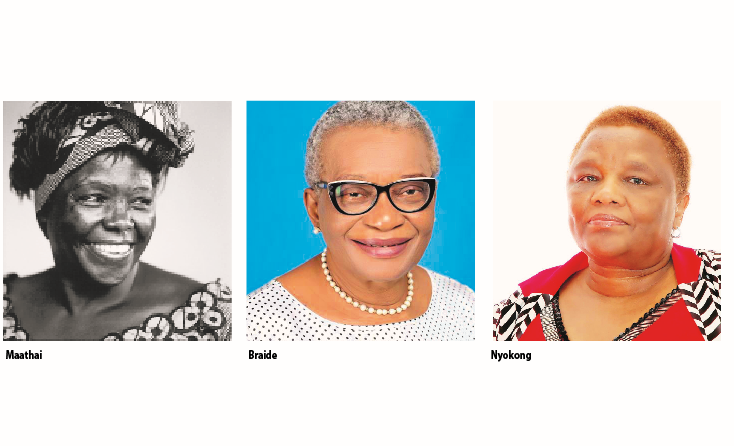At the Women In Science exhibition organized by the Embassy of France and Insitut Francais, Nigeria, the focus is on highlighting women in science, but the message centers on fostering digital access for women to thrive in Science, Technology, Engineering and Mathematics (STEM).
The exhibition chronicles ten female scientists, five French scientists, and five African scientists, one from Nigeria, in recognition of the significant discoveries and research women have contributed to the field of science over the years.
It is in line with the United Nations 2023 theme for International Women’s Day, DigitALL Innovation and Technology for Gender Equality.
Women In Science is a reminder that though there seems to be a low presence of women in global science, there are more of women sciences than we thought of, and even African women scientists. Hence, the need to highlight them. There is Lesotho’s Tebello Nyokong contribution to nanotechnology and photochemotherapy which paved the way for safer cancer detection and treatment, an alternative that kills cancer cells in the body without damaging other cells. Kenya’s Wangari Muta Maathai, founded the Green Belt movement, the largest movement against deforestation that helped plant over 50 million trees, and fight for humans’ rights and in particular women rights.
Madagascan, Zara Randriamanakoto co-founded the Malagasy Astronomy and Space Science association to promote astronomy among young students, and the global movement Ikala STEM that rallies about 300 women scientists across four continents that inspire girls and women to a career in science. She is one of the two female astrophysicists in Madagascar, and is currently investigating the formation, evolution and disruption mechanisms of massive star clusters. Francine Ntoumi worked to prevent the spread of diseases like Ebola, leading a project for the EU to fight the Ebola virus epidemic. She also started the project to encourage young girls to study sciences called Femmes & Sciences. Finally, Nigeria’s Ekanem Nkpi Braide credited with the eradication of guinea worm in Nigeria. Braide is also the current and first female president of the Nigerian Academy of Science since its establishment in 1944. All ten women received global science awards for the contributions to science.
In fact, a 16-year-old Nigerian girl, Faith Odunsi last year (2021), became the world mathematics champion, after she won the Global Open Mathematics Tournament.
However, in Africa, and specifically Nigeria, the number of Africa women in science is not translating to an increased number of women in science. This is for a number of reasons, the lack of access to education, inadequate access basic science education and infrastructure, as well as low access to digital technology.
Hence, TECH HER’s CEO, Chioma Agwuegbo’s challenge to the exhibition’s attendees to support enhancement of women’s/girls’ access to DigiTech.
“There cannot be digital innovation without access. There cannot be digital innovation without infrastructure. My organization runs a digital inclusive project that has so far reached 19 schools in peri-urban communities in Abuja. In some of these schools, the children sit on the floor. some of these schools are not connected to the national grid.
“I want to enjoin every one of here today, every time you look at the images, think of the practical, sustainable ways we can engage and shift the needle on access. Think of sustainable, practical and innovative ways, we can engage with our partners, be it local or international to ensure that we have more girls in classrooms who are safe, beyond signing treaties and signing of partnerships.”
In her message to young Nigerian girls, the French Ambassador to Nigeria and ECOWAS, Emmanuelle Blatmann, reassured them they can be anything they want to be in the field of science, regardless of naysayers who may claim it’s a field for the opposite sex. “You can thrive in the whatever sector you want. It is not because you are a woman that you cannot do it. Everything is for you.”
To women everywhere she urged to go into politics. “My only regret is the very small number of women in politics. I think it is important this change over the years. I know some women don’t want to go into politics because it can be a tough sector. But, if you really want to change things, we need women who want to go into politics. We also need men who are He for Shes that are believers in women and are willing to support them,” concluded Blatmann.





